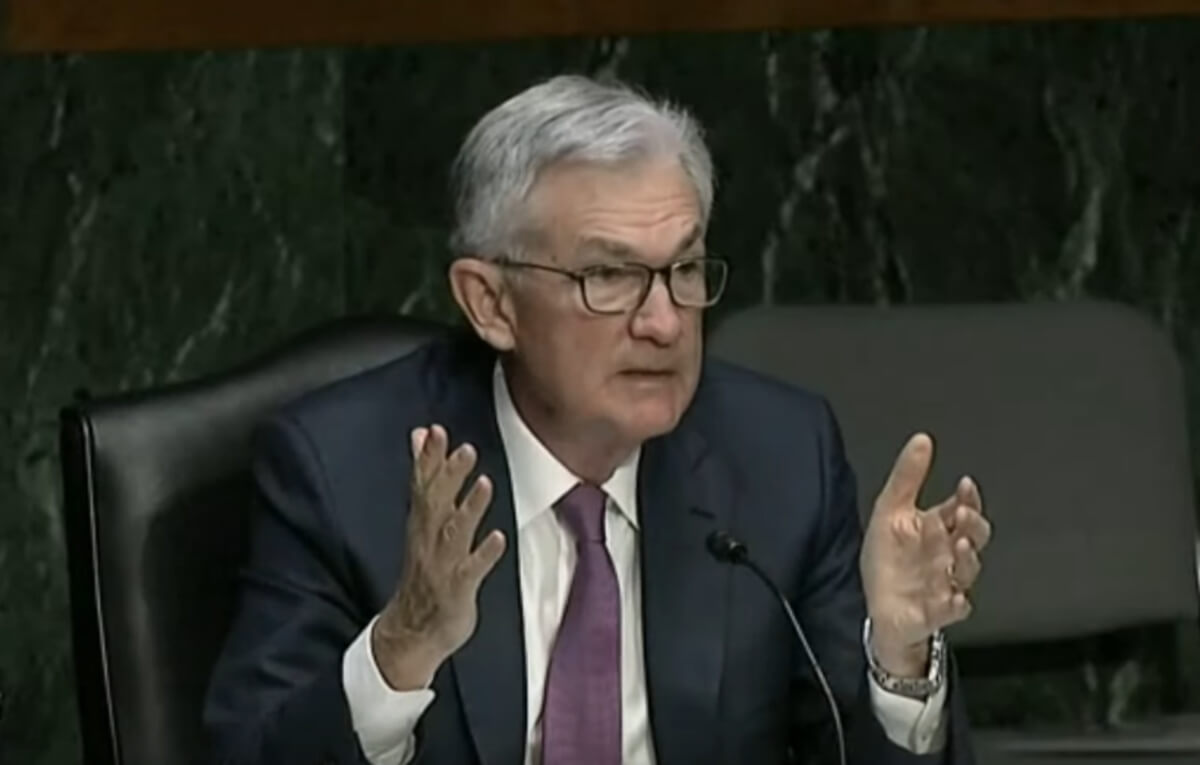US Fed Chair’s Top 3 Crypto-Related Comments in Front of Senate Banking Committee

The US Federal Reserve (Fed) Chair Jerome Powell discussed the central bank’s COVID-19 response and financial stability, among other issues, during his re-nomination testimony on Tuesday in front of the Senate Banking Committee. He also made several comments that may potentially have an impact on the crypto market — and here are the top 3 ones.
Era of low interest rates remains
Senator Sherrod Brown (D-Ohio), the Banking Committee’s chair, started the meeting by praising Powell in his opening remarks. However, he made some stark comments with regard to crypto, calling the industry a “systemic risk” to the economy.
“The Fed needs to take seriously the systemic risks that threaten our economic progress, like cryptocurrencies and stablecoins and most importantly, climate change,” Brown said, adding that crypto bubbles are comparable to risky Wall Street schemes.
Meanwhile, Powell, in his opening remarks, highlighted some of the issues that are currently adversely affecting the economy. He mostly emphasized inflation, saying that the central bank will use “tools to support the economy and a strong labor market and to prevent higher inflation from the entrenched.”
However, he noted that,
“We have been and probably remain in an era of very low interest rates,” Powell said, adding that inflation might persist well above the Fed’s target.
This is bullish for risk assets like cryptocurrencies that usually take a hit when the Fed raises (or even announces future plans for the raise of) interest rates.
Fed’s digital currency report coming
When asked about the Fed’s much-anticipated digital currency report, Powell claimed that the report will be released within weeks.
“The report really is ready to go and I would expect we will drop it, I hate to say it again, in the coming weeks,” he said.
The report is expected to primarily focus on central bank digital currencies (CBDC), which the Fed has been looking into “very carefully” since the beginning of the last year. However, it might also mention other aspects of crypto, particularly issues with the privately-issued stablecoins.
Powell also said that the report will ask for public feedback.
“And by the way, it’s more going to be an exercise in asking questions and seeking input from the public rather than taking a lot of positions on various issues, although we do take some positions,” he said.
Digital dollar and stablecoins could coexist
Senator Pat Toomey (R-Pa.) voiced concern regarding the usage of a CBDC in such a manner “that individual Americans have retail accounts with the Fed and the Fed becomes the retail banker for America.” He argued that the central bank does not have such capabilities, with which Powell agreed.
Toomey also asked Powell whether a digital dollar would be designed in a way to oust private stablecoins.
“If Congress were to authorize the Fed to pursue a central bank digital dollar, is there anything about that that ought to preclude well-regulated, privately-issued stablecoins from coexisting with a central bank digital dollar?,” Toomey said.
“No, not at all,” responded Powell.
While this is a far less hawkish stance towards stablecoins, Powell has not always held this point of view. Back in July, he argued that the US could remove the need for digital assets, particularly stablecoins, by issuing a CBDC.
“In particular, you wouldn’t need stablecoins, you wouldn’t need cryptocurrencies if you had a digital US currency – I think that’s one of the stronger arguments in its favor,” he stated back then.
____
Learn more:
– Bitcoin Fluctuates as US Employment Figures Send Mixed Signals to Fed
– Bitcoin, Ethereum Could Benefit If Stocks Drop After Fed Tightening – Strategist
– Cryptoverse Smarts as ‘Bad Actor’ Readies to Talk Stablecoins to US Senate
– CBDCs in 2022: New Trials and Competition with Crypto
– How Global Economy Might Affect Bitcoin, Ethereum, and Crypto in 2022
– 2022 Crypto Regulation Trends: Focus on DeFi, Stablecoins, NFTs, and More




